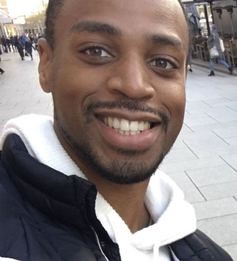
Obi Eneh, MPA
Teachers College, MA in International Educational Development
Obi is interested in language-in-education planning and policy in multilingual states across developing contexts, with emphasis on increasing access to L1 or mother tongue-based education for students from minoritized ethnolinguistic backgrounds. His AC4 project centers on Moroccan teacher perspectives on potential outcomes for Tamazight as a language of classroom instruction in response to Framework Law 51.17 (La loi-cadre 51.17), Morocco's most recent education reform law. Historically, Tamazight has largely been marginalized in Moroccan society and underdeveloped in the education system. Obi, along with his research assistants, will interview in-service primary school teachers on their thoughts concerning current implementational challenges and potential future trajectories for Tamazight language in education under the provisions stated in the new law.
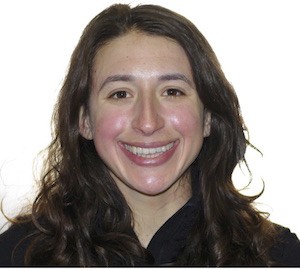
Danielle Falk
Teachers College, PhD student in Comparative and International Education
Danielle's research focuses on the lived experiences of teachers working amidst protracted conflict and forced displacement as well as the policy environment influencing their work. For the last six years, she has contributed to research on teacher well-being, teacher identity, and teacher professional development (TPD) in Ethiopia, Kenya, Rwanda, Tanzania, Uganda, and South Sudan. She has also designed and implemented multi-modal, continuous TPD for teachers in these settings. Prior to starting her doctorate, Danielle was the Lead Trainer and Capacity Building Manager for Teachers for Teachers in Kakuma refugee camp, Kenya. Danielle's AC4 research, titled "Educating in Emergencies: Learning from Teachers in Conflict-affected and Forced Displacement Contexts During the COVID-19 Health Pandemic" examines how teachers in crisis contexts have adapted during the pandemic. Through a three-country case study in Kakuma refugee camp (Kenya), Palabek refugee settlement (Uganda), and Torit County (South Sudan), Danielle will employ interviews and policy analysis, to explore: 1) How has COVID-19 influenced refugee and national teachers’ work? 2) What opportunities and challenges do teachers perceive in their work during pandemic? 3) What support do teachers feel they need to do their work more effectively?

Kongit Farrell, L.M.F.T.
School of Professional Studies, MS in Negotiation and Conflict Resolution
Kongit was awarded an AC4 conference award which sponsored her participation in the Gross Global Happiness Summit hosted by the United Nations University for Peace this summer. Kongit's original presentation at the summit, “The New Joy of Sex: An Inclusive Perspective on Healthy & Compassionate Pleasure” connected to the theme of peace in that it centers the concepts of health, respect, pleasure, and safety/non-violence as lenses for intimate behavior. Through this presentation participants became more conscious of their intimate practice, reflected on their values, and learned how to choose partners who are aligned with those values -- with the goal of avoiding intimate practices and partnerships that are violent, unsafe and/or harmful. There are very few women of color who practice and research at the intersection of mental health, therapy, psychology, and conflict resolution. Kongit seeks to close this gap through her research and practice work that builds bridges within and between those fields.
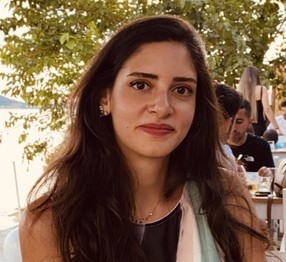
Yesim Hanci
Teachers College, PhD student in Comparative and International Education
Yesim’s research focuses on the role of teachers in peacebuilding, and how teacher agency influences social cohesion. Her study examines how teachers in Turkey support social cohesion in classrooms that Syrian refugee and Turkish national students attend together. This study aims to shed light on the perceptions, challenges, and strategies of teachers in relation to social cohesion. Some issues the study will explore include how teachers accommodate the curriculum and classroom pedagogy to foster social cohesion, and what kind of behavior they engage in to nourish the sense of belonging of refugees, to manage alienation or marginalization of refugees, to create a peaceful learning environment, and to promote inclusion and diversity.
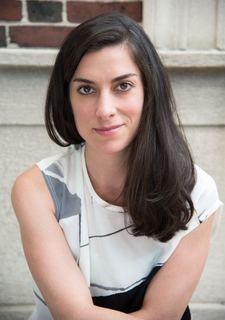
Arianna Pacifico
Teachers College, PhD candidate in Comparative and International Education
Arianna's research examines the ways in which education systems accommodate refugee learners in accordance with the global policy shift toward inclusion of refugee students in national education systems. Focusing on the roles of international donor agencies and national policy makers in Lebanon and Turkey, this comparative analysis examines how policies aiming to include refugees in national systems consider social cohesion and peacebuilding. Arianna's research contributes to the ongoing dialogue around the global education agenda and the complex relationships between education and conflict in light of increasing global forced migration.
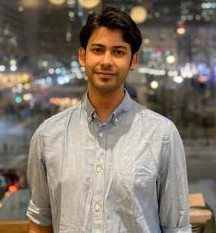
Rishav Kumar Thakur
Graduate School of Arts and Sciences, PhD student in Sociocultural Anthropology
Over the summer, Rishav explored social media public pages of select news agencies in Assam, India. Following how commenting threads emerged after crime reports were posted on these pages, he explored how criminality is grafted onto Muslim (male) bodies who are then accused of being illegal immigrants from Bangladesh. Given Assam is a place with a tense divide between communities identified as autochthonous and communities identified as immigrant (descendants of Muslim farmers from present-day Bangladesh), he worked with these insights to think about how talk around crime on digital media becomes a new way to produce moral panic around immigration in Assam.
